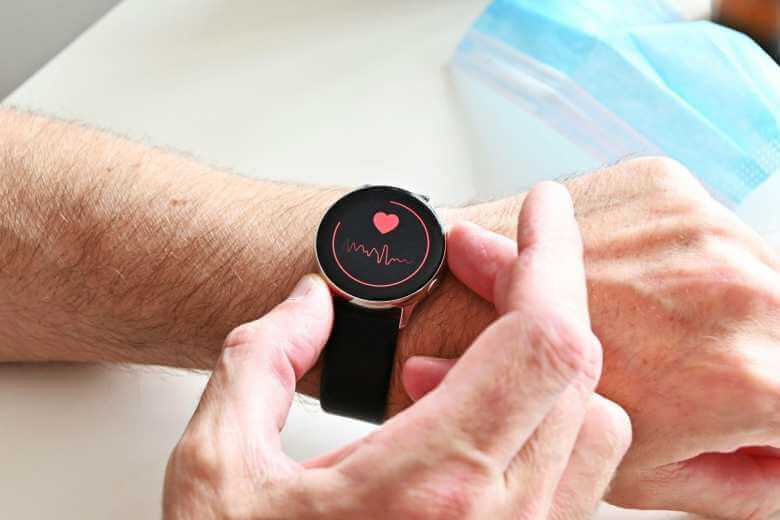Highlights:
- Atenolol, also known by the brand name Tenormin, is a selective beta blocker.
- This drug can treat high blood pressure, irregular heartbeat, and migraines by slowing pulse and relaxing blood vessels.
- Like all medications, atenolol can have side effects, some of which may be severe, especially among people who have serious allergies.
- Atenolol is usually well tolerated and can help support long-term heart health.
- You can find the lowest price for atenolol with BidRx.
Maintaining heart health is crucial for living a long, healthy life. More than 800,000 Americans have a heart attack every year, and heart disease is currently the leading cause of death. Fortunately, many people are able to keep their hearts strong through healthy lifestyle choices and medications. For millions of Americans, beta blockers like atenolol can keep heart rhythm steady and blood pressure under control.
What Is Atenolol and What Is It Used For?
Atenolol, commonly sold under the brand name Tenormin, is a selective beta-blocker used to manage high blood pressure (hypertension), irregular heartbeat, and chest pain. For people who have had a heart attack, atenolol can protect the heart from damage and prevent another heart attack.
Off-label uses for atenolol include anxiety, migraine prevention, and even treatment for alcohol withdrawal.
Atenolol has a long history of effective and reliable treatment for a wide range of conditions. Approved by the FDA in 1998, atenolol is one of the most commonly prescribed antihypertensive drugs.
How Does Atenolol Work?
Atenolol belongs to a class of medications called beta blockers. These medications block the action of certain natural chemicals, like adrenaline and noradrenaline, and reduce their impact on the heart and blood vessels.
Selective beta blockers like atenolol bind to the beta-1 adrenergic receptors in and around the heart. This targeted action effectively reduces heart rate and blood pressure, which lessens strain on the heart muscle and makes it easier for the heart to pump blood. In this way, atenolol can protect the heart and reduce the impact of stress hormones.
A word of caution: While labeled as “selective,” atenolol’s action on beta-1 receptors isn’t perfect. At higher doses, it can affect beta-2 receptors in the lungs, potentially worsening respiratory conditions like asthma or COPD. If you have a respiratory condition, discuss the risks and potential alternatives with your doctor before starting atenolol.
Atenolol Dosage and Administration
Atenolol is available primarily in tablet form, with dose strengths ranging from 25 to 100 milligrams. Your dosage will depend on the condition being treated and your response to the medication. It’s typically taken once daily, and your doctor will adjust it as needed. Understand that these are general guidelines and only a healthcare provider can determine the appropriate dosage for an individual.
How Should I Take Atenolol?
Take atenolol according to your doctor’s instructions. The typical regimen is once a day, with or without food. Maintaining a consistent routine is key to its effectiveness. Don’t suddenly stop taking atenolol — it may lead to new heart problems or even trigger a heart attack.

What Are the Potential Side Effects of Atenolol?
All medications have the potential to cause side effects. This list is not complete, and not everyone experiences the same symptoms. Talk to your doctor about all the symptoms you experience so you can balance the benefits and side effects of atenolol.
Common Side Effects of Atenolol
- Fatigue
- Dizziness
- Nausea
- Diarrhea or constipation
- Cold hands and feet
- Shortness of breath
Less Common but More Serious Side Effects of Atenolol
- New or worsening depression
- Swelling of the ankles or feet
- Sudden weight gain
- Fainting
- Allergic reaction
- Trouble breathing
What Should I Avoid When Taking Atenolol?
Avoid driving or operating heavy machinery until you know how the medication will affect you — especially if you experience fatigue or dizziness as a side effect.
You may want to limit or avoid alcohol as well, as it can worsen this medication’s side effects, especially drowsiness and dizziness.
What Should I Do If I Miss a Dose of Atenolol?
If you miss a dose of atenolol, take it as soon as you remember. If it’s almost time for your next dose, skip the missed one and continue with your regular schedule. Do not take an extra dose to make up for the missed one.
What Should I Do If I Overdose on Atenolol?
Beta blockers control heart rate and blood pressure, so an overdose can be very dangerous. Seek immediate medical attention if you suspect you may have taken an overdose of atenolol.
Signs of an overdose can include:
- Extreme fatigue
- Headache
- Sudden anxiety or depression
- Irregular breathing
- Shaking or seizures

What Precautions Should I Take With Atenolol?
Follow these special precautions and be sure your doctor knows your entire medical history before starting a new prescription:
- Allergy and ingredient check. Inform your doctor about any allergies to atenolol, other medications, or ingredients in atenolol tablets.
- Medication review. Tell your doctor about all prescription, nonprescription medications, vitamins, nutritional supplements, and herbal products you’re taking. Your medication dosage may need to be adjusted.
- Understand your heart health. Inform your doctor if you have a history of slow or irregular heartbeats or heart failure. In this case, atenolol may not be the right choice for you.
- Discuss your health history. Tell your doctor if you have asthma, lung diseases, diabetes, hyperthyroidism, circulation problems, or kidney disease. Mention any severe allergic reactions you’ve had in the past.
- Pregnancy and breastfeeding caution. Notify your doctor if you are pregnant, planning to become pregnant, or breastfeeding. Atenolol may affect unborn babies and is known to pass into breast milk.
- Surgery planning. If you’re scheduled for surgery or dental work, make sure to mention that you’re taking atenolol. This drug can lower your blood pressure too much when combined with anesthetics.
- Dizziness precaution. Be aware that atenolol can cause dizziness or fainting, especially when getting up quickly from a lying position. Rise slowly to prevent these issues.
- Hypoglycemia risk. Atenolol may increase the risk of low blood sugar and mask its warning signs. Discuss with your doctor how to manage your blood sugar levels and recognize symptoms of hypoglycemia.
- Allergy risk and warning. Understand that atenolol might worsen allergic reactions and make injectable epinephrine (Epipen) less effective.
Contraindications of Atenolol
Some people should not take atenolol. Others should use it with caution under close medical supervision.
Keep in mind that these lists are general guidelines. In special cases, doctors may feel the benefits of taking a particular medication outweigh the risks, so if you are in one of these groups, talk to your doctor about your personal situation.
Who Should Not Take Atenolol?
- People with a known allergy to atenolol
- Patients with untreated heart block or severe bradycardia (slow heartbeat)
- People with severe asthma or chronic obstructive pulmonary disease (COPD)
- People with severe peripheral artery disease (PAD) where blood flow to the limbs is reduced
Who Should Take Atenolol With Caution?
- Diabetics, because atenolol can mask signs of low blood sugar
- People with mild or moderate asthma or COPD
- People with controlled heart failure, under strict medical supervision
- People with thyroid disorders, because atenolol can mask the signs of hyperthyroidism
- People with kidney disease, because medications may need to be adjusted
- People with a history of depression
Are There Any Other Potential Drug Interactions With Atenolol?
A large number of medications can interact with atenolol. The most important potential drug interactions to be aware of include:
- MAOIs. Monoamine oxidase inhibitors (MAOIs) can increase the risk of lightheadedness or slow your heart rate too much when taken with atenolol.
- Heart rhythm drugs. When taken with atenolol, these medications can slow the pulse too much.
- Calcium channel blockers. These drugs can enhance the blood pressure-lowering effect of atenolol and further decrease heart rate, increasing the risk of heart block.
- Alpha blockers. These drugs may lower blood pressure too much, leading to hypotension.
- Certain painkillers. Specifically, nonsteroidal anti-inflammatory drugs (NSAIDs) may reduce the blood pressure-lowering effects of atenolol, while opioids can increase the risk of decreased breathing and heart rate.
- Bronchodilators and asthma treatments. These can counteract the effects of atenolol and make asthma or COPD treatment less effective.
- Antivirals. Some antivirals, especially protease inhibitors, can interact with atenolol, potentially leading to increased side effects.
- Allergy and immunotherapy drugs. Combining these agents with atenolol can worsen allergic reactions.
For the complete known interactions list, visit the Drugs.com Drug Interactions Checker. However, no list of potential drug interactions is complete, so let your provider know if you experience any new or unusual symptoms after starting this medication.
Help Your Heart Keep Pumping Strong

Atenolol is a commonly prescribed beta-blocker, and with good reason. This medication plays an important role in supporting heart health and keeping blood pressure under control.
At the same time, medication is not for everyone, and it’s important to learn about atenolol’s potential side effects. Whether you’re taking a beta-blocker to treat heart disease, migraines, anxiety, or protect against a heart attack, you can find your medication for the right price with BidRx.
Get the Lowest Price for Atenolol With BidRx
If your doctor has prescribed atenolol, BidRx can help you get the lowest price for your heart disease medication. Create a bid and let pharmacies compete to give you the best offer. Start with your free account and get started today!
This information is intended for general informational purposes only. It is not a substitute for professional medical advice, diagnosis, or treatment. Always seek the advice of your physician or other qualified health provider with any questions you may have regarding a medical condition or medication.
